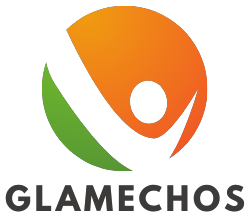Is Korea a Democratic Country?
Yes, South Korea is considered a democratic republic. It transitioned from an authoritarian rule to a democratic system in the late 1980s. South Korea has a president elected by the people and a legislative body. The Economist Intelligence Unit even rated it a “full democracy” in 2022. However, some ongoing discussions exist about the strength of its democratic institutions, particularly regarding social equality and potential limitations on political power.
Korea, a peninsula divided into North and South Korea, stands as a dynamic example of political diversity and progress. South Korea, officially known as the Republic of Korea, has emerged as a democratic powerhouse in East Asia. But what exactly defines a democratic country, and does Korea meet those criteria? Also, read about whether Is China a democracy or a dictatorship
Historical Context
The story of South Korea’s democracy is intertwined with its tumultuous history. Following World War II, Korea was divided along the 38th parallel, with the Soviet Union controlling the north and the United States controlling the south. In 1948, South Korea established a democratic government, but political instability persisted, marked by periods of authoritarian rule.
Elections and Political Parties
South Korea’s electoral system is characterized by regular, free, and fair elections. The country operates under a multi-party system, with the Democratic Party of Korea and the People Power Party being the major players in recent years.
Freedom of Speech and Press
South Korea boasts a vibrant media landscape, with a diverse range of outlets providing coverage on various issues. However, concerns about media censorship and government influence persist, particularly regarding sensitive topics like North Korea and national security.

Human Rights
While South Korea has made significant strides in protecting human rights, challenges remain. Issues such as discrimination against marginalized groups and limitations on freedom of expression continue to be areas of concern.
Civil Liberties
South Korea guarantees its citizens the right to assemble peacefully and form associations. However, challenges persist in areas like LGBTQ+ rights, where societal attitudes lag behind legal protections.
Government Structure
The government of South Korea operates under a democratic framework with three branches: executive, legislative, and judicial. The president, elected by popular vote, serves as the head of state and government. Discover more about What Are the 4 Types of Democracy
Judicial System
South Korea’s judiciary is generally independent, though concerns about political influence and corruption have been raised. Efforts to reform the legal system are ongoing to ensure fair and impartial justice for all citizens.
Social and Economic Factors
South Korea’s rapid economic development has transformed the country’s social fabric. While this growth has lifted millions out of poverty, it has also led to widening income inequality and disparities in political participation.
Regional and Global Influence
As a key player in East Asia, South Korea wields significant influence on the regional and global stage. Its democratic values and diplomatic efforts play a crucial role in maintaining peace and stability in the region.
Public Opinion and Participation
Political engagement among South Koreans is high, with regular protests and demonstrations shaping public discourse. However, trust in government institutions remains a concern, particularly among younger generations.
Challenges to Democracy
South Korea faces several challenges to its democratic system, including corruption scandals and deepening political polarization. Addressing these issues is crucial for maintaining the integrity of the country’s democratic institutions.

Reforms and Future Outlook
Efforts to strengthen democracy in South Korea include reforms to increase transparency and accountability within government institutions. The future outlook remains optimistic, with ongoing initiatives aimed at further consolidating democratic principles.
Comparison with Other Democracies
In comparison to other democracies, South Korea stands out for its rapid economic development and vibrant civil society. However, it also faces similar challenges such as corruption and social inequality, highlighting the universal nature of democratic struggles.
Conclusion
South Korea has made remarkable progress in establishing and consolidating its democratic system since the end of authoritarian rule. While challenges persist, the country’s commitment to democracy and the active participation of its citizens bode well for its future as a democratic nation.
FAQs
1. Is North Korea a democratic country?
No, North Korea is a totalitarian state ruled by the Kim dynasty, with no meaningful elections or political freedoms.
2. How often are elections held in South Korea?
Presidential elections are held every five years, while National Assembly elections occur every four years.
3. Does South Korea have freedom of religion?
Yes, South Korea guarantees freedom of religion, and various faiths are practiced throughout the country.
4. What is the role of the president in South Korea?
The president serves as the head of state and government, responsible for executing laws and representing the country both domestically and internationally.
5. How does South Korea’s democracy compare to Japan’s?
Both South Korea and Japan are democracies with similar political structures, but each faces unique challenges and has its own cultural and historical context.
